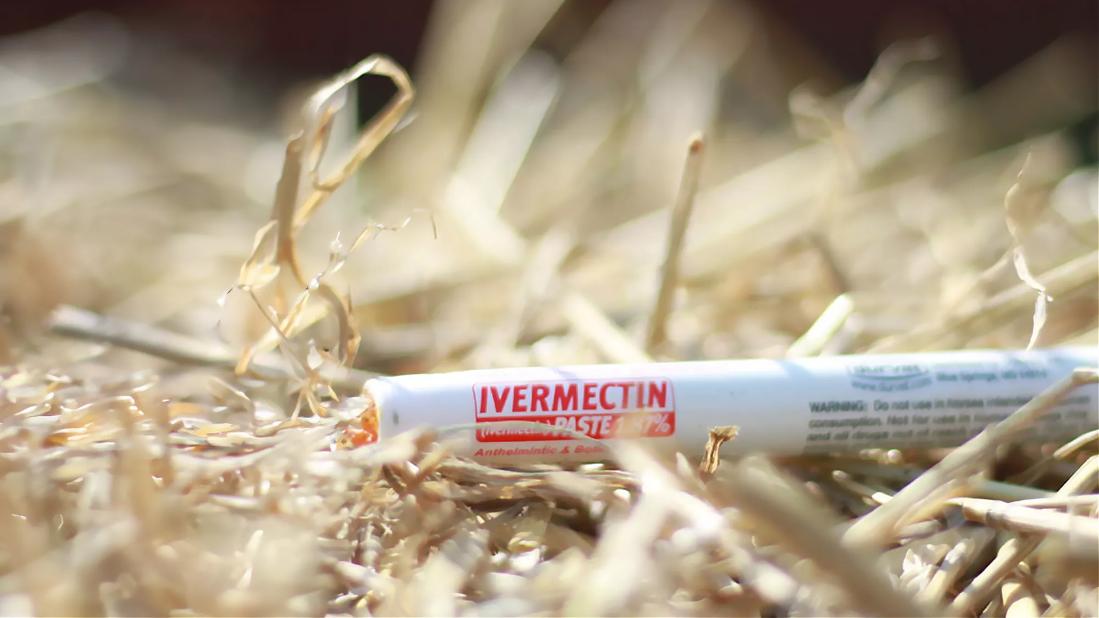The medication is ineffective and — in the case of animal ivermectin — potentially dangerous

Horses, cows, sheep and other animals are different from humans. That’s a good place to start in explaining why it’s NOT a good idea to treat COVID-19 using animal formulations of a medication called ivermectin.
Advertisement
Cleveland Clinic is a non-profit academic medical center. Advertising on our site helps support our mission. We do not endorse non-Cleveland Clinic products or services. Policy
At the height of the pandemic, ivermectin for animals emerged as a questionable and desperate choice to fight the virus. To this day, some continue to tout it as an alternative prevention and treatment method.
That belief is potentially dangerous and not supported by clinical research, according to the U.S. Food and Drug Administration (FDA).
Let’s look at the risks with critical care physician Abhijit Duggal, MD.
Ivermectin is a medication for parasite infections. It’s available in different forms and concentrations for both animals and people.
For animals, ivermectin is used to prevent or treat parasites (such as heartworms). The medication is sold as a paste or liquid pour-on for topical use. It’s also available as an injectable or chewable. It’s readily available at many agriculture or pet outlets.
For people, ivermectin is an option to treat parasitic roundworm infections like ascariasis, head lice and rosacea. It’s available by prescription in tablets and creams.
The FDA hasn’t approved any version of ivermectin for use against COVID-19.
As you might expect, ivermectin made for animals — particularly large barnyard animals — is at a much higher dosage than what might be prescribed by your doctor. Large amounts of ivermectin can be toxic or even deadly for people, says Dr. Duggal.
Advertisement
The FDA reports multiple cases of people requiring medical attention, including hospitalization, after self-medicating with animal ivermectin. The FDA issued a consumer warning against people using animal ivermectin and continues to advise against it.
Potential side effects of taking animal ivermectin include:
If you take animal ivermectin and start experiencing any negative symptoms, Dr. Duggal strongly recommends an immediate trip to the nearest emergency room for appropriate treatment.
Prescription ivermectin has been studied as a potential candidate to treat COVID-19 or lessen symptoms of the virus. But overall results point to ivermectin not being an effective option.
That’s not a surprise, explains Dr. Duggal: “This is a medication used to take care of worms. It has no biological effect on viruses,” he says.
Evidence suggests people continue to turn to ivermectin. Research shows that prescriptions for the medication increased substantially after COVID-19, particularly in the early months of the pandemic.
The FDA acknowledges, too, that some healthcare professionals may prescribe a medication for an unapproved use (such as ivermectin for COVID-19).
If you choose to use ivermectin for COVID-19 and get a prescription, the FDA urges that the medication be secured through a pharmacy. Medications intended for animals should not be used by people.
Staying up to date on COVID-19 vaccinations remains the best way to protect yourself against the virus, which continues to circulate, infect and endanger people around the world, emphasizes Dr. Duggal.
There’s a worry that many people experimenting with ivermectin are substituting the ineffective (and potentially dangerous) medication for COVID-19 vaccines.
“We don’t want to see people disregarding a proven therapy with something ineffective,” says Dr. Duggal. “The best thing we can do is share information to make sure people don’t rush into taking ivermectin, which is not going to change their risk for COVID-19.”
Advertisement
Learn more about our editorial process.
Advertisement

Most can return to work or school when they’re symptom-free for 24 hours

Covering your mouth when you cough and staying home when you’re sick are a couple ways to help keep yourself and others COVID-free

This vital nutrient supports your health, but its role in COVID-19 prevention and treatment isn’t proven

Studies have shown promising results, but additional research is needed

Infection and inflammation can cause you to lose your voice and have other voice changes until you’re fully healed

A COVID-19 infection can bring on depression or anxiety months after physical symptoms go away

Just like the flu, COVID-19 continues to evolve every year with new and smarter variants

The latest omicron subvariants carry specific mutations that may allow the SARS-CoV-2 virus to be better at evading immune protection

Wearing a scarf, adjusting your outdoor activities and following your asthma treatment plan can help limit breathing problems

Your diet in the weeks, days and hours ahead of your race can power you to the finish line

When someone guilt trips you, they’re using emotionally manipulative behavior to try to get you to act a certain way